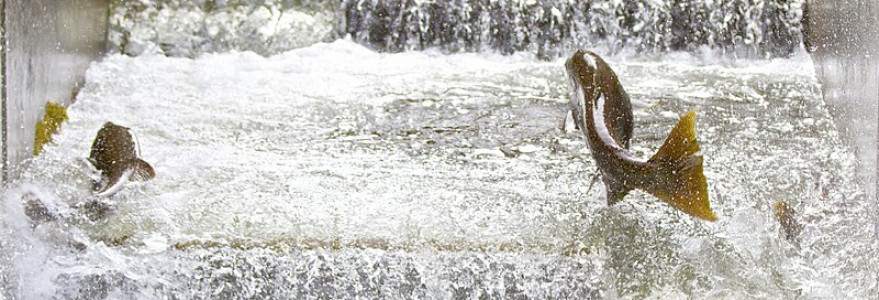Fish within a species differ in their capability of effective upstream or downstream passage through fishways across barriers. Prof. Barbara Pietrzak and Alicja Fudali from the UW’s Faculty of Biology investigated fish individualities and their impact on management and conservation issues.
Understanding how individual animals vary in behaviour means understanding how behavioural individualities, i.e. personalities, emerge and are selected, leads us to a better understanding of how higher level systems, such as food webs, communities, or ecosystems, function. The researchers focused on various personalities of freshwater fish, for example boldness, exploration, activity, aggressiveness and sociability, as well as the way they are manifested and their ecological and evolutionary outcomes in face of anthropogenic alterations such as habitat fragmentation by damming, climate change and chemical pollution in the contemporary world.
Prof. Barbara Pietrzak and Alicja Fudali from the Department of Hydrobiology, the Faculty of Biology, the University of Warsaw, raise the subject of behavioural personalities in fish and anthropogenic threats in their work “Freshwater fish personalities in the Anthropocene”, which was published in Ecohydrology & Hydrobiology journal.
“Inter-behavioural differences in behaviour of fish are frequently investigated. We provide a snapshot view of what personalities in freshwater fish are, how they manifest in different species, how they are shaped under different selective pressures, emerge over ontogeny, and form complex traits” Prof. Pietrzak said.
The researchers point out that in the contemporary global environmental crisis, freshwater habitats and their fish habitants are disproportionately both biodiverse and threatened. Thus, it is of crucial importance to understand how individual fishes cope with the anthropogenic change. The three major threats (damming, climate change, and chemical pollution) to freshwater fish are also discussed in the scope of the persuasive role fish personalities play in the contemporary world.
“The interpretation of data indicate that fish boldness, activity and exploration, as well as experience, seem to matter on dam bypasses, which was shown e.g. in upstream movement of eel, smelt and trout, and salmon moving downstream” Prof. Pietrzak explained, adding: “Fish are threatened due to exposure to altered water flow and temperature extremes. Water abstraction, diversion, damming and pollution, together with climate change and invasions, are all repeatedly indicated as the major threats to freshwater biodiversity. In order to satisfy increasing demands for food, individuals in higher environmental temperatures may be driven to undertake more active, aggressive, bold and exploratory lifestyles.”



